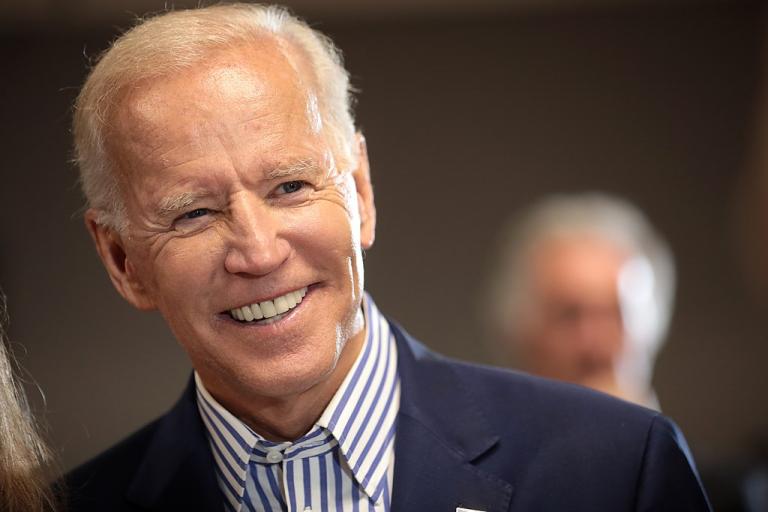
On Monday, electors met for each state to form the Electoral College, which elected Joe Biden, upon his inauguration on January 6, to be our next president.
Like it or not, whether or not you believe with Donald Trump that the election was stolen, it doesn’t matter. Biden’s presidency is now official, legal, a done deal.
To reiterate, it isn’t a majority of the voters who elect the president, or even the states, as such. The Constitution assigns this task to “electors,” as selected by the states, which selects them according to the votes of the people. Even if there were illegal votes, as Trump contends, and even if the state legislators did not enforce their election laws properly, as Texas and 17 other states tried to argue to the Supreme Court, that doesn’t matter now. The state legislatures have, in fact, acted by certifying the results. They have sent their electors and a clear majority, 306 of them, voted for Joe Biden, so he is elected.
Lutherans should appreciate the electoral system. Voting is not a post-Enlightenment invention. In the Middle Ages, an office far bigger and more powerful than the American presidency–the Holy Roman Emperor–was elected. To be sure, the common people didn’t get to vote, nor did the nobility. Only seven individuals in all the land could vote for the ruler of Germany, Italy, and Eastern Europe: the Archbishop of Mainz, the Archbishop of Trier, the Archbishop of Cologne, the King of Bohemia, the Count Palantine of the Rhine, the Margrave of Brandenberg, and the Duke of Saxony.
So those three bishops, a king, and three German nobles had lots of power. And they were the target of intense campaigning when there was an imperial vacancy. In Luther’s day, his own ruler, the Duke of Saxony–a.k.a. Elector Frederick, a.k.a. Frederick the Wise–proved to be a key vote in electing Charles V to that high office, so the Emperor owed him big time. This is why Duke Frederick was able to protect Luther from the Emperor’s decree against him after the Diet–a legislative assembly consisting of the Emperor and the nobles in his jurisdiction–of Wurms.
At any rate, we Americans have not seven but 538 electors, and we citizens have a say in selecting them. (Notice that the advance towards Democracy is not about voting but who gets to vote. And since the rest of our government similarly consists of representatives, in voting about who gets to vote.)
And the bottom line is, the electors chose Joe Biden to be our president.
How do you think he will do? I have read lots of speculation from both political sides, whether expressions of hope or fear, but we really don’t know yet. We don’t know what he wants to do. Political rhetoric and campaign promises are not a reliable guide, as we should have learned by now.
Nor do we know what he can do. Much will hinge on the outcome of the Senatorial races in Georgia, which will determine if Democrats or Republicans control the Senate. And how will Biden manage the different factions in the Democratic party? Will he let the Progressives have their way, or will he resist them?
Some are saying that the Biden administration will just be a replay of the Obama administration. Or a bland return to the “establishment” approach to governing. Or a return to “normalcy” after the non-stop drama of the Trump administration.
Some are saying that Biden will herald a new era in the presidency, an institution that has grown far too powerful and personality-driven, that the office will return to that of a more modest, technocratic executive, with the Legislative branch–in which Biden has spent most of his career–returning to the pre-eminence that the Founders intended.
Some are saying that Biden will preside over the most progressive administration since Franklin Delano Roosevelt. What would that look like? Even as a more moderate liberal, he is likely to take on big issues, such as social, economic, and racial injustice; climate change; health care; inequality, etc., etc. What might he do about them? Will he solve long intractable problems or, in his efforts to do so, will he just make them worse?
How will he respond in a crisis? As Vice-President, Biden opposed President Obama’s plan to attack Osama Bin Laden. We can expect Biden not to get us involved in voluntary wars, I suspect, which is a good thing. But can he be tough when he needs to be?
The news media savaged Trump and did all it could to thwart his agenda. How will the media treat the new president? While the election was going on, the news media buried the stories about Biden’s son Hunter and his financial shenanigans with China and the Ukraine. Now that Biden has been safely elected, though, stories about Hunter are starting to come out. Will the mainstream news industry carry water for the Biden administration, or will they find greater success–as they did with Trump–in being critical of him?
We conservatives are skeptical of a Biden presidency. But it seems like we need to give him a chance. We should criticize him when he does something we think is wrong, and we should also praise him when he does something we think is right. And we should hope that there is more of the latter than the former.
We Christians are obliged to pray for our temporal authorities. In our liturgy, in the Prayer of the Church, we prayed for Barack Obama when he was in office, then we prayed for Donald Trump, and now we will pray for Joe Biden.
Photo: Joe Biden by Gage Skidmore from Peoria, AZ, United States of America, CC BY-SA 2.0 <https://creativecommons.org/licenses/by-sa/2.0>, via Wikimedia Commons













